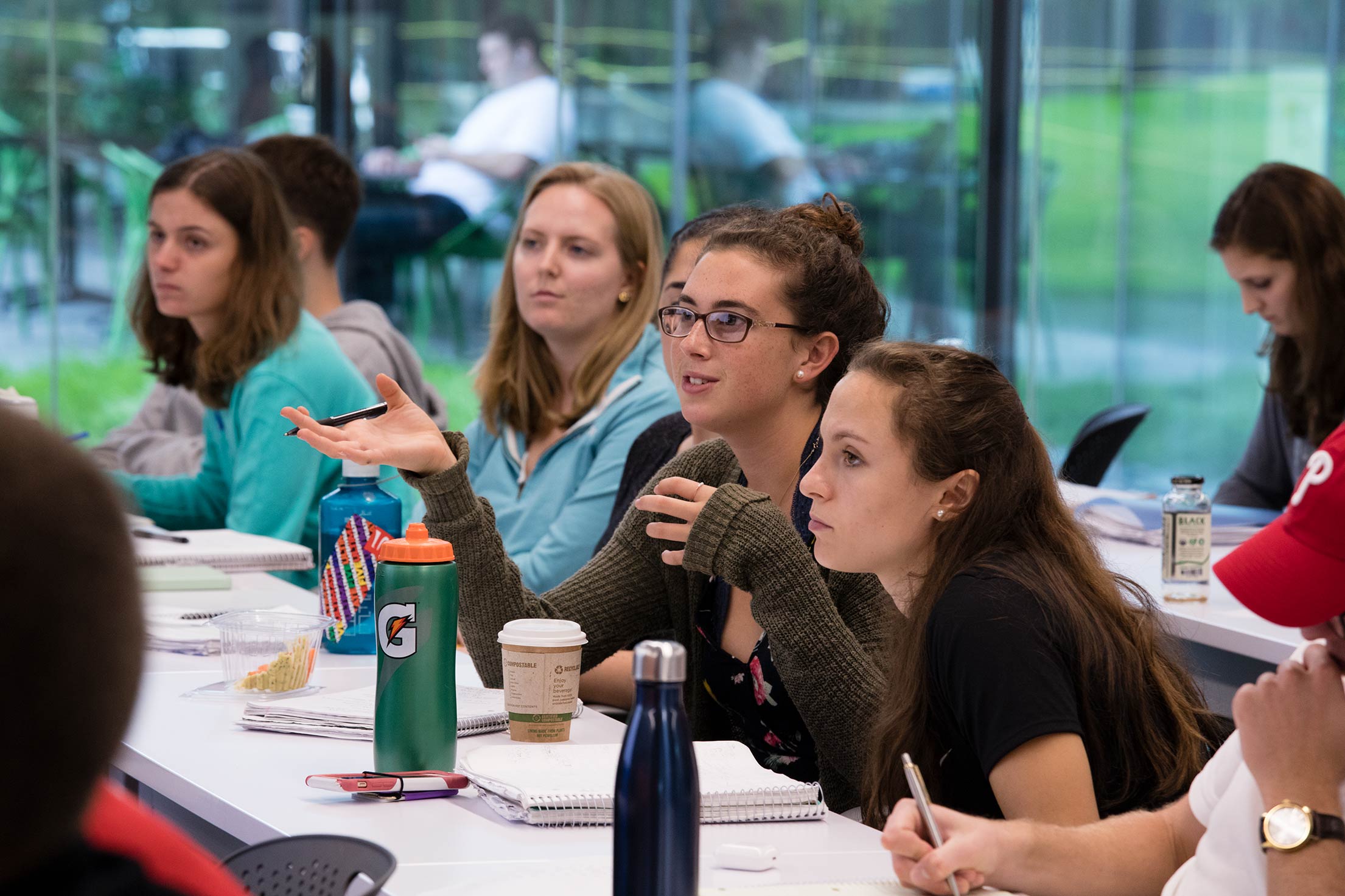Economics may seem like a realm of numbers with no feelings, but a newer branch of the field reminds us that it’s still people who wield the dollars.
Assistant Professor Jakina Debnam, a behavioral economist, is one of three new faculty members in Amherst’s economics department. She researches people’s feelings and ideas about “the good life,” and how policymakers can affect attitudes as well as assets.
These ideas come together in her class “Economics and Psychology,” which “incorporates insights from psychology into economics with the aim of improving human welfare.”
We spoke with her about how these seemingly disparate fields actually overlap quite well.
Q: How did you choose to go into economics?
A: It’s cliché, but I wanted to do something to improve the world. I was interested in health and how there exist vaccines for a lot of diseases that people still die from, and it struck me that it wasn’t a scientific problem—it was an economic problem, of distributing the solution and making sure that people got it. I went and found that economics was underlying a lot of things that I thought were wrong in the world.
Q: How did you end up pursuing behavioral economics?
A: I started out wanting to be a development economist, and I had a hard time reconciling myself to the idea that improving people’s economic well-being, in the way that we thought about it in Western societies, was the best way to develop societies.
I realized that what I was interested in is interrogating from the question: What does it mean to have a good life? Economics is a powerful tool, and I think that among social sciences it definitely gets the most credence in policy conversations, rightly or wrongly. I think that if [economists] are going to have this voice, then we need to be careful about the way we’re trying to intervene in society.

Q: How do economists intervene using our feelings?
A: This book, Nudge [published in 2008 by University of Chicago economist and subsequent Nobel Prize winner Richard H. Thaler and Harvard Law School Professor Cass R. Sunstein], has had a huge policy impact because it’s all about making low-cost interventions in people’s lives in ways that feel unobtrusive. The idea of a “nudge,” or libertarian paternalism, is we want to push somebody toward something that’s better for their interests, but do it in a way that keeps their choice freedom.
We can see these policies that work in things like the mandatory calorie postings on menus in New York City. The traditional approach would be to just tax high-fat, high-sugar foods. But instead, now we want to nudge people—do things that gently remind them that things aren’t healthy. Implicit in this is: you’re making a welfare judgment of what makes somebody “better off.”
Q: How does research differ between psychologists and behavioral economists?
A: The fundamental objective interest for a psychologist would be something like trying to understand or describe a cognitive process. Economists have to use a larger sample size, and people are really going to push you hard if you do unincentivized experiments. If I ask you, “Would you prefer $100 today or $110 tomorrow,” what people will usually say is that they prefer $100 today. But if I were to try to publish that study in economics, I would need to actually offer somebody $100.
Ultimately our goal is to try to make general models of behavior. How does society make choices? How does this matter for policy? That’s the million-dollar question you always have to ask.
Q: Where do you want to take the class?
A: Even though it’s a huge field and there’s a ton of active research, there’s a baseline knowledge that you should know if you know behavioral economics. I want students to understand how behavioral economics fits with neoclassical economics.
I think that students are excited about the idea of being “nudgers,” about intervening in people’s choices and helping them to be better off. I want them to be careful about the assumptions that they’re making. Because I do think it’s easy to get off the tracks.
Q: What do you think of Amherst?
A: One of the things that’s really cool in my class is that students bring in a lot of outside knowledge. I’ve got people who are not all economics majors, people who are bringing in sociology questions. One student came into my office hours and was talking about how he wanted to see how the ideas of Marx related to the social preferences we were studying in class. I love that students do things like that here. It’s exciting to be around.
